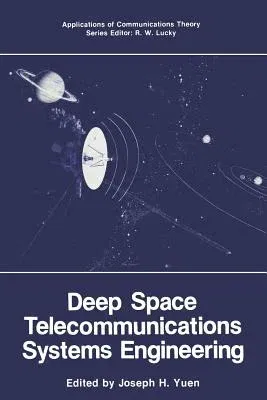Deep Space Telecommunications Systems Engineering (Softcover Reprint of the Original 1st 1983)Paperback - Softcover Reprint of the Original 1st 1983, 26 February 2013

Qty
1
Turbo
Ships in 2 - 3 days
In Stock
Free Delivery
Cash on Delivery
15 Days
Free Returns
Secure Checkout
Part of Series
Applications of Communications Theory
Print Length
603 pages
Language
English
Publisher
Springer
Date Published
26 Feb 2013
ISBN-10
1475749252
ISBN-13
9781475749250
Description
Product Details
Book Edition:
Softcover Reprint of the Original 1st 1983
Book Format:
Paperback
Country of Origin:
NL
Date Published:
26 February 2013
Dimensions:
22.86 x
15.24 x
3.2 cm
ISBN-10:
1475749252
ISBN-13:
9781475749250
Language:
English
Location:
New York, NY
Pages:
603
Publisher:
Weight:
821 gm

